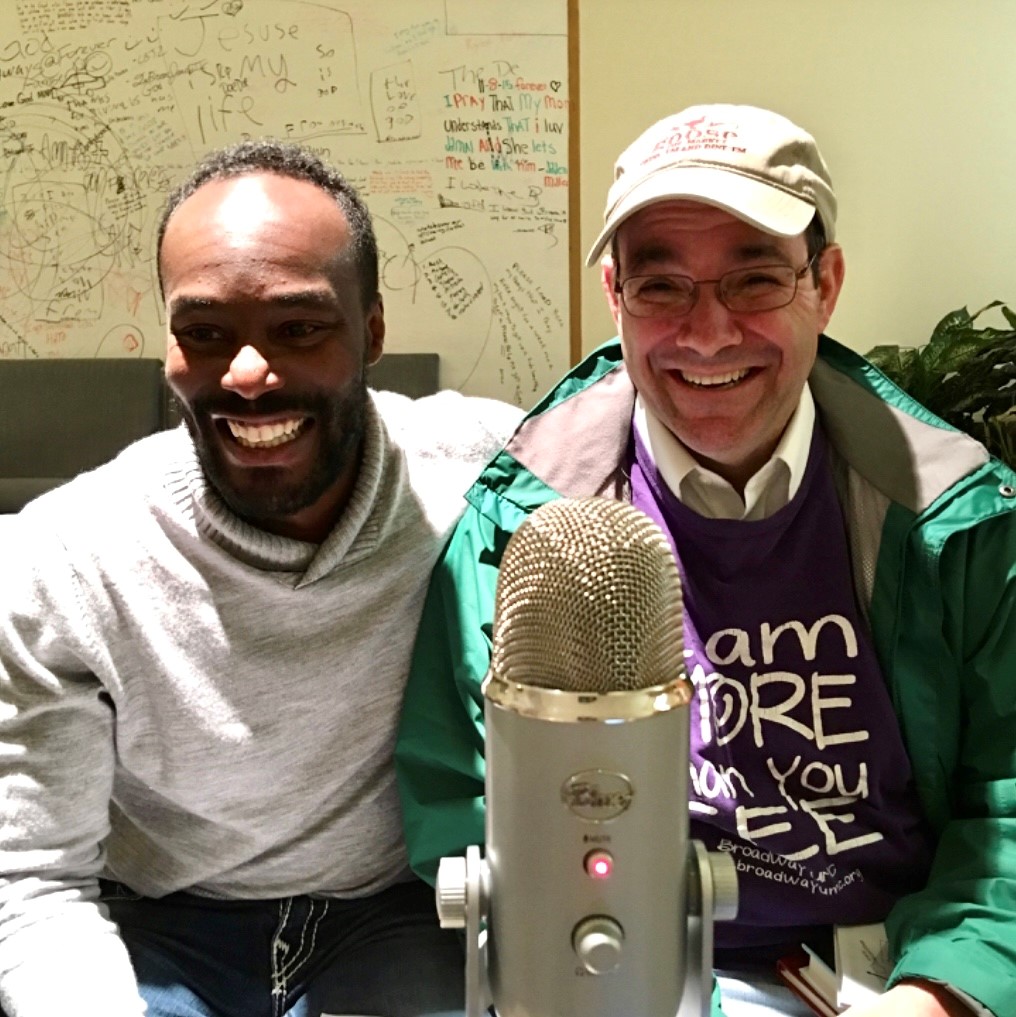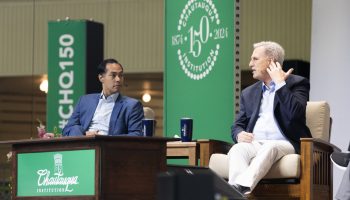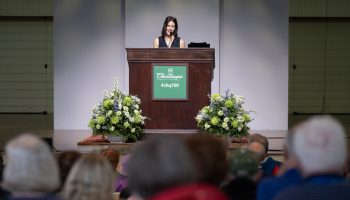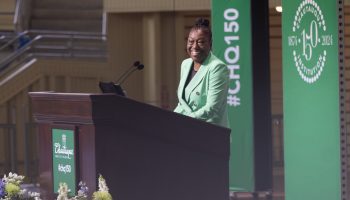De’Amon Harges and the Rev. Michael Mather have been friends for 23 years. They’ve also been friends of Melissa Spas for years, and so when the vice president of religion at Chautauqua started to conceive of a week on “Holy Friendship: Source of Strength and Challenge,” she knew who to call.

“Something I’ve heard De’Amon say again and again is that he helps people fall in love with each other,” Spas said. “Mike was my pastor for five years in Indianapolis, and he leads congregations with more authenticity and truth-telling than any other pastor I’ve ever had.”
At the heart of their friendship and respective ministries is the church’s call to be good neighbors.
Harges is a community organizer and creator of The Learning Tree, while Mather is the pastor of the First United Church of Boulder. Both men are faculty members at the Asset Based Community Development Institute at DePaul University, and they’ll join the Interfaith Lecture Series with a conversation on their friendship and their work at 2 p.m. today in the Hall of Philosophy.
Harges is a layperson at Broadway UMC, where Mather used to serve as pastor. At Broadway UMC, leadership and congregants undertook a radical shift to connect and serve its community.
“The church, and me in particular,” Mather told Duke Divinity School’s Faith & Leadership, “has done a lot of work where we have treated the people around us as if, at worst, they are a different species and, at best, as if they are people to be pitied and helped by us.”
The church’s food pantry, clothing ministry, and other more traditional forms of outreach were replaced by other, more organic ways of enriching neighborhoods.
“The church decided its call was to be good neighbors. And that we should listen and see people as children of God,” Harges said in the same Faith & Leadership story. He became a “roving listener,” going block by block to spend time in the community, asking people what they wanted and needed from the church.
But more than that, “I really started paying attention to what they really cared about,” he told Duke Divinity School.
He started to gauge what talents and passions lay in the neighborhood, and started making connections. Monthly gardening meetings sprouted up, and Sunday school classrooms were filled by gamers, artists, small businesses — and from these connections, people network, collaborate, and make friends.
Tapping into talents that already exist, rather than identifying needs and trying to fulfill them, is foundational to both Mather’s and Harges’ approach to neighborhood rejuvenation.
“Everything is based around scarcity,” Mather told UM News. “With De’Amon, everything is based around abundance. Everybody is looking for what things are lacking, and he goes looking for where the cup overflows.”




